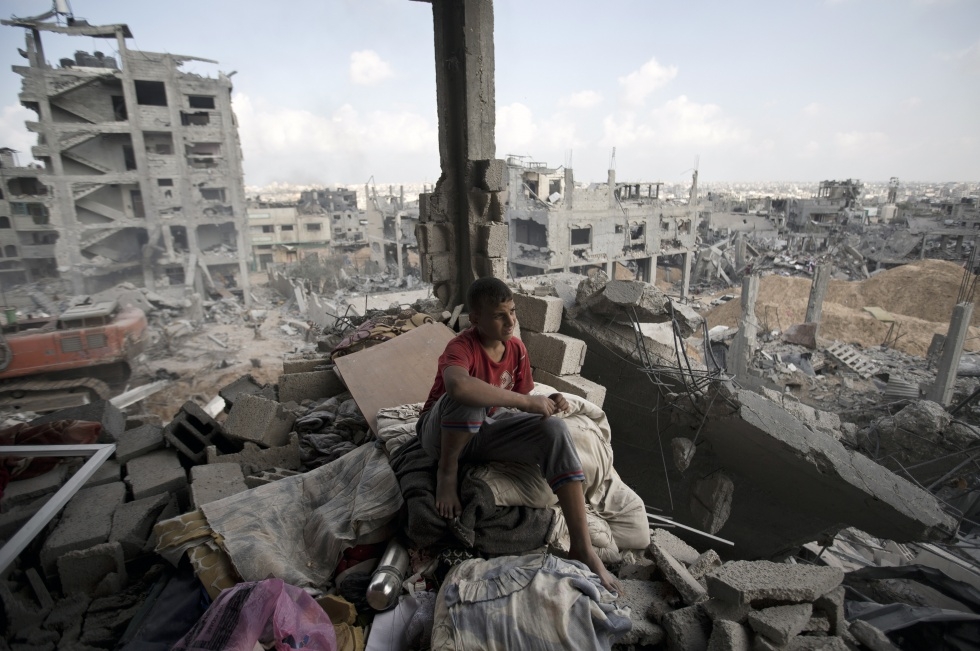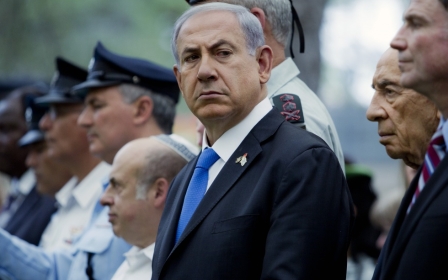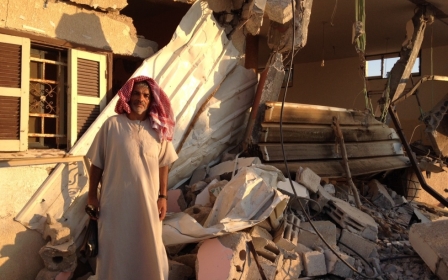Abbas to meet Hamas chief in Doha as splits emerge in Palestinian negotiating team

Palestinian Authority President Mahmoud Abbas reportedly will travel to Qatar to meet with Hamas chief Khaled Meshaal on Monday. The trip comes as indirect talks between the Palestinian factions and Israel resume in Cairo, with a five-day truce in Gaza due to expire at midnight (2100 GMT) on Monday.
Both Israeli and Palestinian leaders have expressed doubt that a long-term ceasefire will be reached in the current round of negotiations in Cairo. Palestinian sources told Haaretz there is a split among their negotiating team and within Hamas itself over the terms they are willing to accept for a deal to end fighting in Gaza.
The source said Meshaal is taking a tougher line than his colleagues, refusing to accept a deal that excludes Hamas from negotiating an opening of crossings in Gaza and playing a role in rebuilding the coastal enclave.
This may explain why Abbas has decided to go to Doha in order to meet with Meshaal. The PA president has come under increasing pressure from Hamas officials to change his approach in engagement with Israel, who have demanded he sign the Rome Statute and enable Palestine to join the International Criminal Court (ICC).
This would allow Palestine to pursue charges of war crimes against Israel, even though it would also potentially expose Hamas to similar charges at the ICC.
As Abbas travels to Doha, Palestinian negotiators in Egypt late on Sunday accused Israel of making “unacceptable” amendments to the Egyptian truce proposal.
"The Israelis want to focus on one thing; the disarmament of the Palestinian resistance," negotiator Qais Abdel-Karim told Anadolu Agency following a meeting with Egyptian mediators.
"Talking about disarmament is enough for us to label these amendments unacceptable," he added.
Israeli officials expressed doubt that a deal will be found before the ceasefire expires, but said that if Hamas does not fire rockets they would be willing to continue negotiations.
“It’s still not clear if we can reach an agreement,” a senior Israeli official told Haaretz. “If the [rocket] fire resumes, Israel will respond forcefully, and if the fire does not resume but no agreement is reached, we will examine whether we can come to some other arrangement and provide humanitarian assistance to the people of Gaza.”
The talks follow more than a month of Israeli attacks against the besieged Gaza Strip, leaving at least 2,016 Palestinians dead and more than 10,000 others injured. Around 64 Israeli soldiers have been killed in the Gaza assault, while three Israeli civilians have been killed by rockets fired from the coastal enclave.
Israel accused of stalling
A spokesperson for Hamas on Sunday accused Israel of “stalling” on agreeing a deal in Cairo and said the group were in a strong negotiating position.
Sami Abu Zuhri told Ma’an News that Hamas’ priority is “to reach an agreement, but the occupiers must stop stalling.”
“We are discussing an agreement from a position of strength, not weakness,” he said. “Either we have an agreement that meets our demands, or no agreement.”
“Israelis will not enjoy safety until our people do and the siege is completely lifted. Israelis in the south will only return home when Hamas allows them to, not when Netanyahu does,” he said.
On the Israeli side, Prime Minister Benjamin Netanyahu has said a long-term ceasefire deal hinges on their security needs being definitively met.
“Only if there is a clear answer to Israel’s security needs, only then will we agree to reach an understanding,” he told ministers at the start of the weekly cabinet meeting in Jerusalem on Sunday.
Netanyahu also warned Israel will not allow Hamas to use negotiations in Cairo to score diplomatic victories.
“If Hamas thinks it will make up for its military losses with a political achievement, it is wrong,” he said. “If Hamas thinks that by continuing the steady trickle of rocket fire it will force us to make concessions, it is wrong.”
Stark differences in Palestinian delegation
Referring to the reported differences of opinion among Palestinian negotiators, Haaretz report that key Hamas goals are unlikely to be met by Israel.
“The Palestinian side understands that Israel is in no position to grant Hamas any points, like a seaport of an airport,” the source said. “But it must be said that Israeli isn’t particularly eager to come to an agreement with the factions, particularly Hamas.”
“So the difficulty focuses on the fact that Egypt and Abu Mazen [Mahmoud Abbas] are enthusiastic about reaching agreement while Israel and Hamas – particularly Hamas abroad – aren’t rushing to advance the process,” they added.
The source said while Fatah and Islamic Jihad are open to accepting the Egyptian draft ceasefire proposal, Hamas has reservations about the PA conducting negotiations with Israel over opening crossings that could "take years".
More than 200,000 Palestinians in Gaza remain displaced, according to the UN, amid a humanitarian crisis that continues to grow. The Palestinian Energy and Natural Resources Authority have said they are operating on six hours of electricity per day and warned there is a scarcity of clean water available.
If a durable ceasefire deal can be agreed between Israel and the Palestinian factions, however, Norway has announced they will co-host a donor conference with Egypt to help towards the reconstruction of Gaza.
“The invitations to the conference, to be held in Cairo, will be duly extended once an agreement on a sustainable ceasefire has been reached as a result of the ongoing talks in Cairo,” the Norwegian foreign ministry said in a statement on Monday.
Middle East Eye propose une couverture et une analyse indépendantes et incomparables du Moyen-Orient, de l’Afrique du Nord et d’autres régions du monde. Pour en savoir plus sur la reprise de ce contenu et les frais qui s’appliquent, veuillez remplir ce formulaire [en anglais]. Pour en savoir plus sur MEE, cliquez ici [en anglais].




